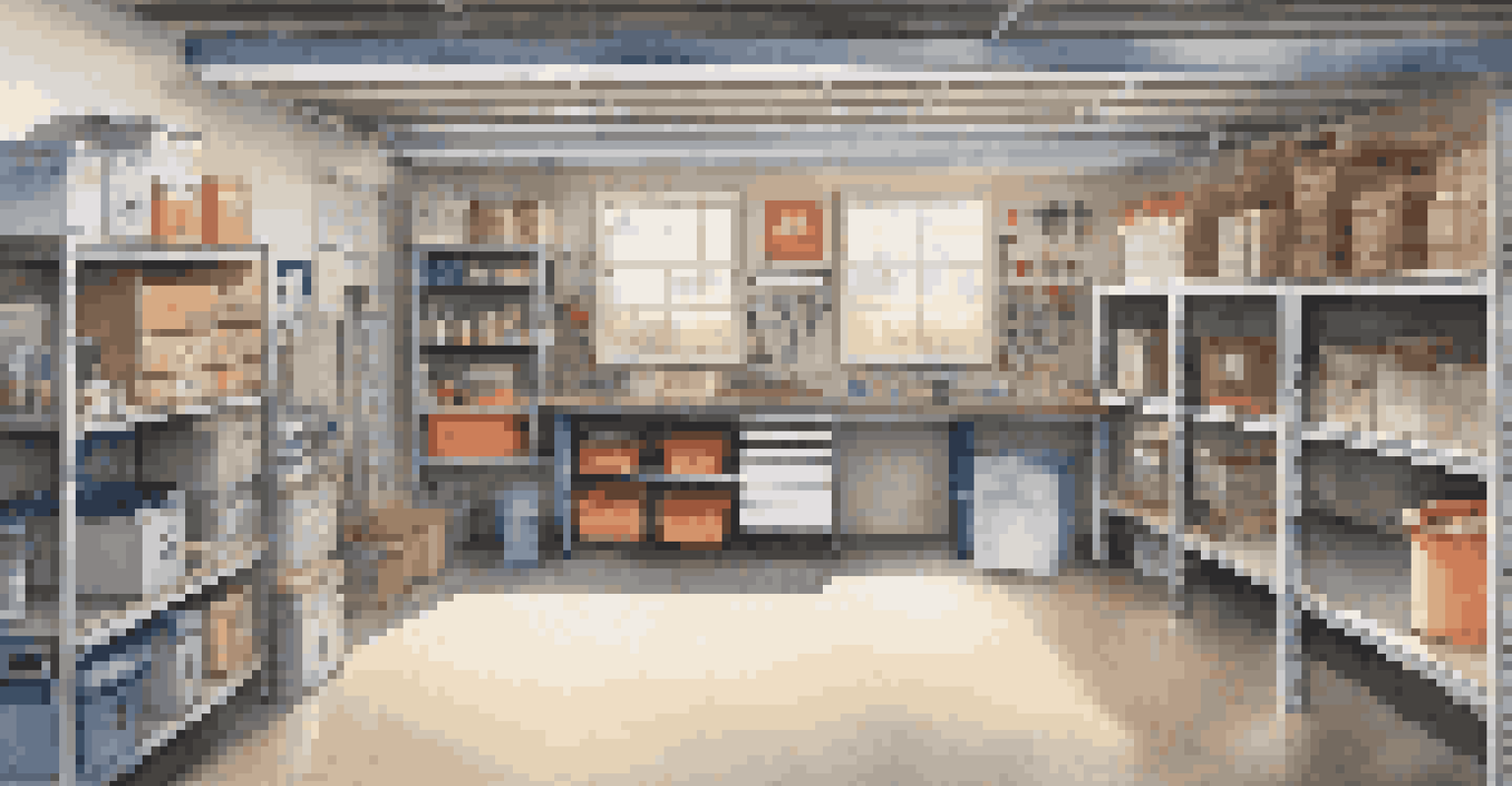How to Prepare Your Home for a Home Inspection Review

Understand the Importance of a Home Inspection
A home inspection is a crucial step in the buying or selling process. It provides an objective evaluation of a property's condition and can uncover potential issues. Understanding this importance can help you prepare your home to impress the inspector and buyers alike.
A house is made of walls and beams; a home is built with love and dreams.
Think of a home inspection as a report card for your house. Just as students want to show their best selves, homeowners should aim to showcase their property’s strengths. A positive inspection report not only instills confidence in buyers but can also lead to better offers.
By preparing your home for inspection, you're investing in a smoother transaction. This proactive approach can save you time and money, allowing you to address any issues before they become stumbling blocks.
Declutter and Clean Your Home Thoroughly
First impressions matter, especially when it comes to home inspections. A clean and clutter-free home allows inspectors to navigate easily and focus on assessing the property’s condition. Make sure to declutter surfaces and remove personal items to create a neutral space.

Cleaning goes beyond just tidying up. Pay attention to the small details—dusting, vacuuming, and scrubbing surfaces can make a significant difference. A well-maintained home signals to buyers that it has been cared for, which can positively impact their perception.
Importance of Home Inspections
A home inspection is vital as it reveals a property's condition, helping sellers prepare and instill buyer confidence.
Consider enlisting the help of professional cleaners if needed. They can provide a deep clean that ensures your home shines, leaving a lasting impression on both the inspector and potential buyers.
Address Minor Repairs Before the Inspection
Inspectors will look for any visible signs of wear and tear, so it’s wise to tackle minor repairs beforehand. Fixing leaky faucets, squeaky doors, or chipped paint can go a long way in showcasing your home's upkeep. These small fixes often lead to a more favorable inspection report.
The best way to predict the future is to create it.
Think of these repairs as polishing your home's resume. Just as a well-presented resume can catch an employer's eye, a well-maintained home can impress an inspector. It shows that you've taken the time to care for the property and are attentive to details.
Prioritize repairs that are easily visible or could raise red flags during the inspection. Addressing these issues upfront can save you from negotiating repairs later in the selling process.
Check Major Systems: Plumbing, Electrical, and HVAC
Before the inspection, take the time to check your major home systems, including plumbing, electrical, and HVAC. These components are often scrutinized by inspectors, and any issues can lead to costly repairs. A little preemptive maintenance can go a long way.
For instance, ensure that all faucets are in good working order and that there are no leaks under sinks. Check your electrical outlets and light switches to confirm they are functional. This proactive approach can help you identify issues that you may not have noticed otherwise.
Prepare for a Positive Inspection
Thoroughly cleaning, decluttering, and addressing minor repairs can significantly enhance the inspection outcome.
By addressing these systems, you can foster a sense of confidence in buyers. Knowing that the essential components of your home are in good condition can make your property more appealing and lessen the chances of surprises during the inspection.
Ensure Accessibility to Important Areas
Inspectors need access to critical areas of your home, such as the attic, basement, and garage. Make sure these spaces are easily accessible and free from clutter. A clear path allows the inspector to perform a thorough evaluation without any hindrances.
Imagine trying to read a book where every page is stuck together; it would be frustrating and ineffective. The same goes for an inspector navigating a cluttered space. By providing clear access, you’re helping the inspector do their job efficiently, which can lead to a more favorable outcome.
Taking the time to prepare these areas can also show buyers that you are organized and responsible. First impressions matter, and a well-prepared home speaks volumes about the care you’ve provided.
Be Honest About Your Home’s Condition
Transparency is key in any real estate transaction. Being honest about your home's condition can help establish trust with potential buyers as well as the inspector. If there are known issues, disclose them upfront rather than trying to hide them.
Think of it like a friendship; honesty fosters trust. When you’re upfront about the challenges your home has faced, it allows buyers to make informed decisions. This honesty can ultimately save everyone time and frustration in the long run.
Honesty Builds Trust with Buyers
Being transparent about your home's condition fosters trust and sets realistic expectations during the inspection process.
By being forthcoming, you’re also setting realistic expectations for the inspection. It’s better for buyers to be aware of any issues rather than discovering them later, which can lead to disappointment and mistrust.
Prepare for the Inspector's Arrival
On the day of the inspection, make sure your home is ready for the inspector's arrival. This includes ensuring that all lights are working, pets are secured, and your home is at a comfortable temperature. A welcoming environment can set a positive tone for the inspection.
Consider leaving a note for the inspector, highlighting any important details about the home, such as recent repairs or upgrades. This simple gesture can assist the inspector in understanding the property better and may even sway their perception positively.

Finally, it’s often best to vacate the premises during the inspection. This allows the inspector to work without distractions, and it shows respect for their process. A calm, prepared environment can contribute to a smoother inspection overall.